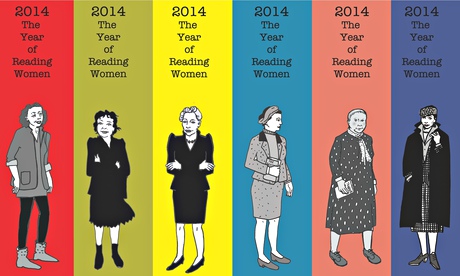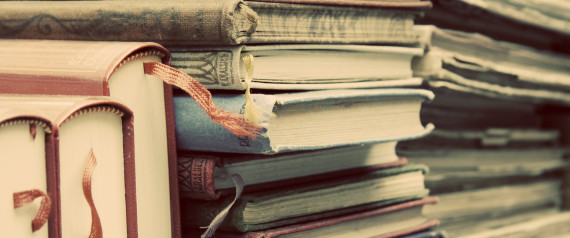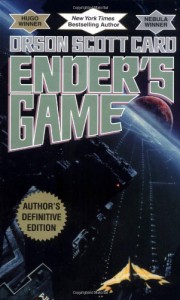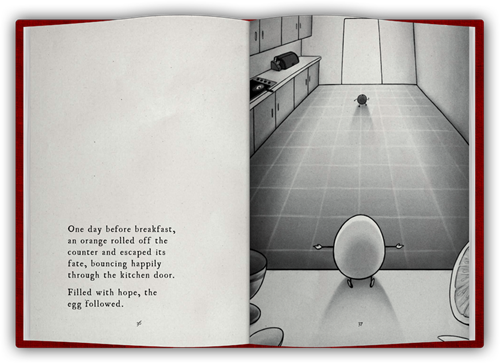Kate says
I have many alternative worlds, all on my bookshelf. Working at BookLikes.com Say hello: kate at booklikes dot com
winter reading

pic via
Eleven False Assumptions about Frankenstein

Everyone knows the story of Frankenstein. Or at least one thinks so. Book adaptations very often present Frankenstein's story in a superficial way. After accepting the pop-cultural version of it we may understood it all the way around. So I've selected eleven false assumptions that many make about Frankenstein.
1. Frankenstein is the Monster. Nope. Frankenstein is a doctor who creates the Monster.
2. The Monster is dangerous. Not at the beginning of his life. He's vulnerable and all he wants is acceptance and a friend.
3. Victor Frankenstein abandons the Monster because of its evil soul. Nope. It seems that he abandons the Monster because he is scared of it. He's different, much uglier than he thought, huge. He named the creature "the Monster" before it acquired any monster-like features. When the Monster wakes up doctor Frankenstein realizes what he has done and what the outcome of his crazy work looks like.
4. The Monster is rotten to the core. Nope. Abandoned by his creator the Monster is ugly but innocent and naive as a child. He was rejected many times and experienced nothing more than hate from other human beings. His good deeds didn't bring him any good.
5. The Monster is stupid and primitive. No. After many nights in the forest and by the fireplace, he found a spot in a household situated in the remote area. From the hidden room, he overlooks and overhears the family. By observation (like a child) he learned to read, write and speak. He also got the knowledge of literature, geography, humane nature and culture. He became thoughtful and sensitive creature.
6. The Monster becomes a murderer and kills everyone on his way. No. He sough revenge and killed only those in relationship with Frankenstein's family.
7. The Monster wants to kill Frankenstein. No. He wanted to make his life lonely and miserable.
8. The Monster doesn't have any feelings. No. He knew he's appearance is very unusual and that people are scared of him but he didn't want to be alone. The Monster wanted to be loved that's why he asked Frankenstein to create a second Monster, a female. Then they would live happily ever after in Amazon's rain forests and would not hurt anyone.
9. Frankenstein creates a female for the Monster. Yes and No. He nearly finished her, however, he never revived her. What's more, he tore her apart.
10. The Monster kidnaps Frankenstein's wife to create a family with her. No. He killed her as he promised, during wedding night.
11. Frankenstein kills the Monster. No. We don't know what happened to the Monster. We know he was left alone on ice floe on freezing rough waters. It was Frankenstein who ended dead in the story.
The Shelley's descriptions were so vivid and, yes, very depressing. The language is stunning, modern writers write differently. The book made me think about many difficult and complex issues, such as medicine, experiments, responsibility, human body, complicated relationships, guilt and punishment, life and death. Frankenstein was published in early XIX but the issues brought up in the book are universal and definitely up-to-date. Good piece of classics.
Will #readwomen2014 change our sexist reading habits?

It's a truth universally acknowledged that, although women read more than men, and books by female authors are published in roughly the same numbers, they are more easily overlooked. Their marginalisation by top literary journals, both as reviewers and the reviewed, is confirmed in a yearly count by the organisation Vida: Women in Literary Arts. Perhaps the problem lies not with whether women are published, but how. Read more (via The Guardian)
Even if you don't agree, I think it's a great initiative and a way of discovering and experiencing new literary personalities.
No to Be Puzzled

I've found this pic among reading tips for parents and teachers (Reading Tip: Raising a Well-Read Child) as a play to start a conversation about literature and different aspects of literary genres with children. But I think it's a great idea not only for kids and can be used not only for book-related topics, e.g. as a word map for exploring new vocabulary or brainstorm while writing a story.
You can cut out the puzzles, color them and write words, phrases, ideas, characters, even wishes. I've seen marvelous wooden puzzles with wedding wishes. But it would look great as a gift, let's say for upcoming Grandparents' Days (in Poland we celebrate them January 21 and 22).
Or for a fellow book lover filled up with favorite book quotes.


19 Quirky Conundrums Only Book Lovers Understand

OMG!! How come strangers know so much about me?!
via HuffPost:
1. Finding a comfortable reading position is a never-ending quest. Chair or bed? Side or back? In a box? With a fox?
2. On airplanes, you hesitantly flick on the overhead light while everyone else is napping.
3. Paper cuts may look like minor injuries, but the pain can be excruciating.
4. Walking and reading at the same time requires hand-eye coordination only professional athletes have been endowed with.
5. What on earth are you supposed to do with the jacket on a hardcover while you're reading it? Keep it on and risk damaging it? Take it off and store it in a weird nook, never to find it again?
6. Deciding what to read is a choice that presents you with an embarrassment of riches.
7. The typeface and page length of a book can seriously impact your reading experience, sometimes for the worse (sans-serif font is a huge no-no).
8. A book can be composed of the worst drivel you've ever laid eyes on, you're still afflicted with major guilt when you banish it to the "I Will Never Ever Ever Finish This. Like, Ever." shelf.
9. You lament time that you've wasted in the past; all of those hours scouring celebrity Twitters could have been put towards finally reading Moby Dick!
10. Some people count down the minutes until their lunch hour; you count down the minutes until Jeffery Eugenides or Donna Tartt releases their next book (roughly 5 million for Tartt, but who's counting?!)
11. Finishing a book you loved is like saying goodbye to a good friend. You've been through so much together! And while you may see each other again, it won't be quite the same.
12. Forget finding roommates; the most stressful thing about moving is figuring out a way to transport boxes upon boxes of heavy books.
13. You're constantly rethinking your bookshelf strategy. Should you color-coordinate, or take a more practical approach, such as publication date or alphabetization? Or, if you're feeling ambitious, should you tackle the autobiographical bookshelf, à la Rob Gordon from High Fidelity?
14. Your mood is directly impacted by the mood of the book that you're reading; your friends have learned to avoid you during Dostoyevsky months or Bret Easton Ellis weeks.
15. You take found books home like abandoned puppies, chirping, "Can we keep it?!" That'd be well and good if it didn't happen once a day.
16. One does not simply walk by a bookstore. One must poke around, at the very least, and one usually ends up filling one's tote bag with more books than one can carry.
17. "I don't read" is a relationship death knell, akin to "I loathe my mother" or "I enjoy upsetting kittens."
18. You may or may not own two (or three or four) copies of a beloved book. You can't help it, the redesigned covers are irresistible!
19. Laundry day and other important obligations get completely overlooked when you're in the middle of a great, un-put-downable book. "Same shirt Saturday"? Sorry you're not sorry.
Getting ready :D Game of Thrones Season 4.
My name is Tamet L. Readivy
 This is so cool!
This is so cool!
I came across the article which describes the origins of names used by Susan Collins in Hunger Games Trilogy (great read as well, link to the article below) and at the same time discovered another site where you can pick your own Hunger Games name!
And since I've read them all I played! :)
Here's how it happened. There are several rules:
1. Write down the second syllable of your middle name.
I don't have a middle name, and my first full name in Polish is Katarzyna, so the second syllable is ta.
2. Write down the name of a plant.
Ivy (I'm not always a good girl and this plant makes me think of something evil ;-) )
3. If you are a female above the age of 30, write down the word "less." If you are a female under the age of 30, write down the word "met." If you are a man of any age, write down the word "petra."
Female, under 30 (not long though, oh dear...) so met.
4. Write down the first initial of the last name of your favorite English teacher from school..
It's L.
5. Write down one simple action verb.
Read it is.
And now let's mix:
- Combine the answer from #1 with the answer from #3. That is your first name.
-Your middle initial is the answer to #4.
- Your last name is your answer to #5 with your answer to #2 added to the end.
My Hunger Name is Tamet L. Readivy :D
What's yours?
Here's Cool article about Hunger Games Names (click).
Source for picking new name: Find Your Hunger Games Name! (click)
Got back broken from library

Ouch. Those fees and my poor memory about library deadlines. I felt like Joker and returned home as a broken hero.
The Last Bookstore by Susan Coll
 ‘Good morning, how can I help you?”
‘Good morning, how can I help you?”
“I’m looking for a book.”
“Great. What book?”
“I think it’s about a bird. It might be called ‘The Canary.’ ”
“There’s ‘The Canary Handbook.’ It’s not in stock, but I could order it for you.”
“No, that’s not it. Maybe it wasn’t a canary. I know: It was about something that flies. It could have been a parrot.”
“Sure, lots of parrot books out there. There was the one about Alex, the African grey parrot. It’s the true story of . . . ”
“No, this is more of a made-up story. It’s for my granddaughter.”
“Sounds like you want to try the children’s department, right down those stairs.”
“How can I help you?”
“I’m looking for a book.”
“Would you happen to have the title?”
“It’s a long shot, but I was in my car about a month ago and heard an author on the radio. Sounded really interesting.”
“Fiction? Nonfiction?”
“I don’t remember.”
“Anything about it you can remember?”
“It was raining.”
“About the book, please.”<
TBR Jar
Now I know what I'll be doing in 2014, emptying my TBR jar :-)
Excellent idea by Library of Mallory.

<
Game Over

I'm sorry science fiction fans, for me Ender's Game was only OK.
I've finished the book some time ago but couldn't decide how I felt about it. There were lines, pages when I thought I'll just put it aside and let it go and other time I thought Hmm, oh wow, that's interesting point. It's been really long time since any book brought such contradictory thoughts.
Ender is a 6-year-old genius who is chosen to be world saver in upcoming war with aliens. The boy is taken from his family house to Battle School where he is trained hard beyond his possibilities. Ender is the best so he's also hated by other children, he struggles with other boys who bully and intimidate him. In those critical situations Ender reveals his dark side which is in odds with his inner feelings and leads to frustration and fear of becoming a monster, a sadist, a murderer, like his older brother. I felt really sorry for Ender but at the same time I just couldn't grab the connection with him as he didn't sound like a child, like a 6-year-old boy. It confused me and made me think of him as of total stranger and not character I'm bonded with.
Battle School brought Ender's many enemies and few friends with whom he trains. The description of battles and trainings were great and this part I really enjoyed.
But what the Game is really about? The story quite depressing and full of manipulations. Nothing seemed as it looked like, the adults in school were boys' guides, mentors and enemies at the same time. Not to mention the children who are quite terrifying with their big brains and deadly thoughts (there were moments where I thought of Lord of the flies).
Ender's Game has also a political aspect in which Ender's siblings pull the strings via net and false identities who are active in top world discussion panels. Thanks to their genius tactics they can influence the political and economic directions the world is heading. And this is the part which was the least interesting for me, it's just not my cup of tea. Like the whole science fiction, I'm afraid.
But then again, no one is perfect and not everyone needs to like everything.
Books To Help Children
Books are great as an entertainment but they can mean more than that. They can make the change. Worldreader is a global non-profit organization which fights with illiteracy in the poorest places in the world by using books and the newest technology - e-readers. One of the Polish organization collects books to set up libraries for kids in the hospitals. Books help children.

Worldreader established projects in several African places, including Ghana, Tanzania, Zimbabwe and more (check here) to help children and adults with illiteracy problem. How it helps? It donates thousands of e-readers and ebooks which are then used as school learning equipment during classes, in the libraries and in the learning centers. They share reading passion, but first of all to teach kids to read.
The e-readers are bought from donations, some writers joined, gaveaway and shared their books for free. Worldreader also partners with several big booksellers and publishers - with their help children have access to thousands of e-books from different genres.
David Risher, the head of Worldreader says:
Here's a culture where reading has never really gotten a chance to take off because the access to books is so limited. So we make it easy for people to get access to books and we try to put books on the e-readers that are appealing to kids and interesting to teachers so that we can, over time, help people shift a little in their behavior and their mindset.
The initiative is stunning and the idea behind it very humane and humanistic.
I only hope that this kind of actions will be more and more popular in other parts of the world too. Many kids, not from the poorest countries, lack chances, possibilities and opportunities to learn or read a standard paper book.
Every person can make the change. Let's do something locally, as a start. Are you in?

I'll be taking part in a project set up by Zaczytani in my country. The idea is to donate books and to help to create libraries for children staying in the hospitals. So simple and can change so much.
You can read more here:
NPR article: E-Readers Mark A New Chapter In The Developing World (click)
Worldreaders webpage: http://www.worldreader.org
Zaczytani: http://zaczytani.org (in Polish)

 16
16

 2
2
 15
15





